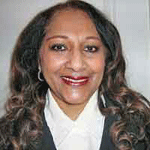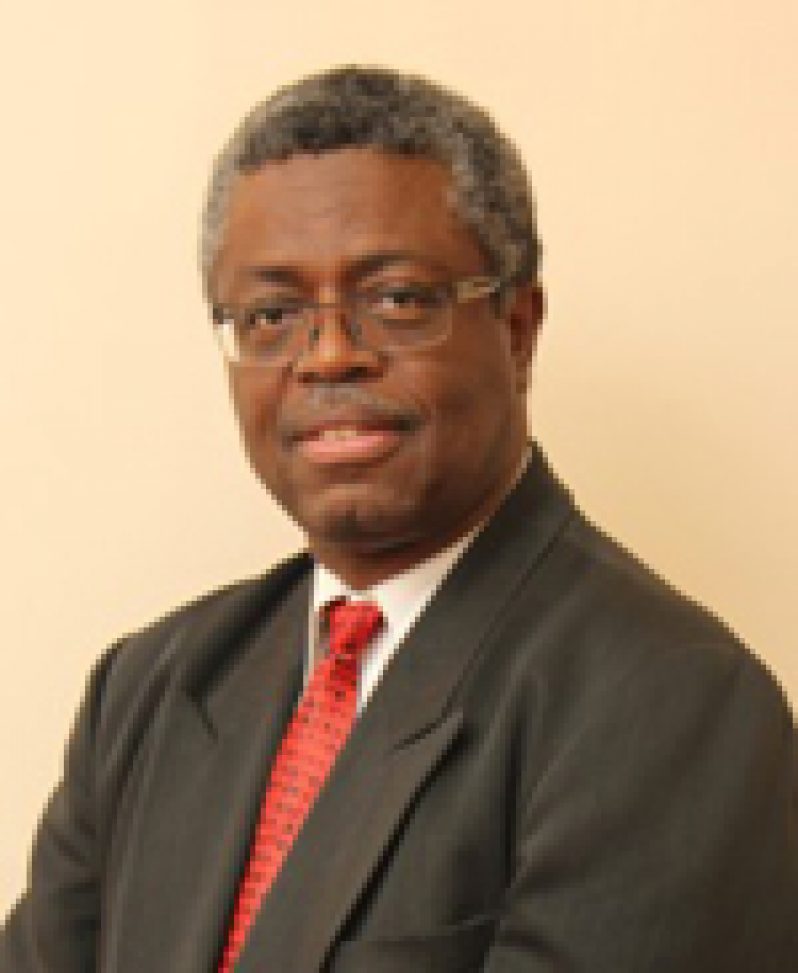NEW OPPORTUNITY TO ENHANCE SKILLS OF CARIBBEAN DIPLOMATS
CARICOM member states will have the opportunity to strengthen the capabilities of their diplomats in a few months if they take advantage of the new Diplomatic Academy that is being established by the Trinidad and Tobago Government at the University of the West Indies (UWI) Institute of International Relations (IIR).

 IIR, which has been the training ground for the region’s diplomats for decades, has had a major focus on an academic programme in its teaching and research. The new institution, scheduled to be launched in January 2014, will provide more pragmatic programs that will better equip students for a career in diplomacy.
IIR, which has been the training ground for the region’s diplomats for decades, has had a major focus on an academic programme in its teaching and research. The new institution, scheduled to be launched in January 2014, will provide more pragmatic programs that will better equip students for a career in diplomacy.
“The Diplomatic Academy will offer modules designed to train potential and actual diplomats. These modules will be short in duration but very intensive. They would help those who are freshly hired in Foreign Affairs Ministries to hit the ground running,” The Institute’s Director Barbados-born Professor Andy Knight explained.
Knight, who was appointed head of the Institute in January this year, is a former Chair of the Department of Political Science at the University of Alberta in Canada. A Governor of the International Development Research Centre (IDRC) for five years, he has also served as Vice Chair of the Academic Council on the United Nations System (ACUNS).
The IIR Director regards the establishment of the new Diplomatic Academy as evidence of Trinidad and Tobago’s leadership role in the Caribbean. “The Diplomatic Academy will be one more example of how the Government of Trinidad and Tobago supports countries in the region. We expect that not just OECS countries, but CARICOM countries and even other countries in the global South, will take advantage of the Academy and have their people trained in the art of diplomacy at the Academy here in Trinidad. This influx of students/participants from the Caribbean will strengthen the IIR’s reputation as a truly regional institute, “Knight told me.
During my stint at the Institute in the mid 1980s, students came from across the region. In recent years, the Institute lost the regional flavour as many CARICOM countries opted to train their own diplomats. One of the IIR Director’s goals is to reverse this trend.
Financial constraints have been cited as one of the reasons why CARICOM countries stopped sending students to the Institute. Efforts are being made by the Institute to secure donor funding to facilitate more Caribbean students being trained at IIR.
The curriculum for the post graduate Diploma in International Relations includes International Politics, International Law, International Money and Finance, International Trade and Economic Development, International Relations of the Caribbean, International Relations of Latin America and the Political Economy of International Development and Organisation. IIR also offers a M.Sc. in Global Studies, M.Phil in International Relations and a Ph.D. in International Relations.
In addition to the academic programme, students get the opportunity to visit countries such as Venezuela, Panama, Costa Rica, Cuba and the U.S. (Washington D.C.)
One key factor why some CARICOM countries lack a solid cadre of professionally trained diplomats is the many ruling party loyalists in the Region’s Foreign Service. As well, some countries do not rotate their diplomats, retaining some of them in the same post for a decade or more.
According to Knight, There is nothing particularly wrong with occasionally bringing in individuals from various sectors of life into the Foreign Service. However, he believes the practice of appointing politically loyal individuals to key diplomatic posts will have the effect of demoralising individuals who are career diplomats within the Foreign Service.
“If Governments want to appoint individuals loyal to them as diplomats, then they should ensure that these individuals get some intensive training in the Diplomatic Academy to ensure that they can be successful in their postings,” he commented.
“Public diplomacy, digital diplomacy, trade diplomacy, prosperity diplomacy, tourism diplomacy, sports diplomacy, cultural diplomacy – these all have a role to place in the changed international system. So the first job of governments should be to occasionally bring all their diplomats back home and have sessions with them that sensitise them to the different forms of diplomacy and help them realise that there is a lot of diplomacy happening outside of Ministries of Foreign Affairs,” he added.
Many of the Region’s Missions and Consulates, including in New York and Toronto, are ill equipped to pursue economic diplomacy. Apart from inadequate marketing and investment promotion budgets, there are few trained trade and investment promotion specialists and there is a large focus on consular affairs and organising cultural events.
When it comes to economic diplomacy, Barbados and Jamaica are pros at this. Trade and investment specialists with Invest Barbados and the corps of experienced Trade Commissioners with the Jamaica Promotions Corporation (JAMPRO) continually seek out business opportunities in the market place.
CARICOM countries that do not have overseas trade and investment specialists need to ensure that their diplomats have Diplomatic and International Trade training. Another area of specialty which some of the Region’s diplomats need to master is public relations, including how to write effective promotional material, and building relations with the press, which includes responding in a timely manner to media queries.
IIR is building the foundation of its research agenda on five pillars: National and Human Security National and Human Security; MDGs (Millennium Development Goals) and Sustainable Development; Human Rights and Humanitarian Action to Protect the most vulnerable; Regional/Global Governance and transparency; and Climate Change and Disaster Management. This is part of the Institute’s Agenda for Research and Action Plan for 2013-2018.
Some of the Institute’s research streams will include Corruption and Crime in the Caribbean; Extremism and Terrorism – Sleeper Cells in the Region; Remapping of Regional Organisations in the Caribbean; Challenges of Small Island Developing States (SIDS); China-Caribbean Relations and Relations with the BRICS (Brazil, Russia, India, China and South Africa); Revisiting Regional Integration; Learning the Lessons of the European Union and Economic Diversification: Lessons to be Learned.
IIR is planning individual and team research, collaborating with external research groups and will organise workshops, conferences and high-level meetings.
One of the very commendable programmes of the Institute is its U.N. Internship for IIR students. This summer, as part of its strategy to mould future leaders and diplomats, the Institute sent four of its top students to New York to intern with the Trinidad and Tobago Permanent Mission at the United Nations.
IIR’s Director noted that CARICOM’s 14 votes at the U.N. are very much sought after by any group seeking to get a resolution approved in the General Assembly.
IIR has also revitalized diplomatic dialogues. Among the dignitaries who have participated in this forum are the President of the U.N. General Assembly Vuc Jeremic and Ambassador Rudy Insanally, a former Guyanese diplomat who once held this position.
Those CARICOM countries that have not sent students to the IIR for a while, should grasp this valuable opportunity to expose their diplomats, both seasoned and new, to the new Diplomatic Academy.
One useful initiative which CARICOM leaders should ask IIR to undertake every two or three years is a Retreat for the region’s Foreign Ministers to reinforce the fundamentals of diplomacy and focus on the coordination of foreign policy in the region, the role of Ministries of Foreign Affairs including accountability for diplomats, equipping overseas missions to effectively participate in international trade negotiations, training for political appointees and key regional and global foreign policy issues.
(Sandra Ann Baptiste is a Business Consultant and Specialist in Caribbean Affairs.)




.png)









